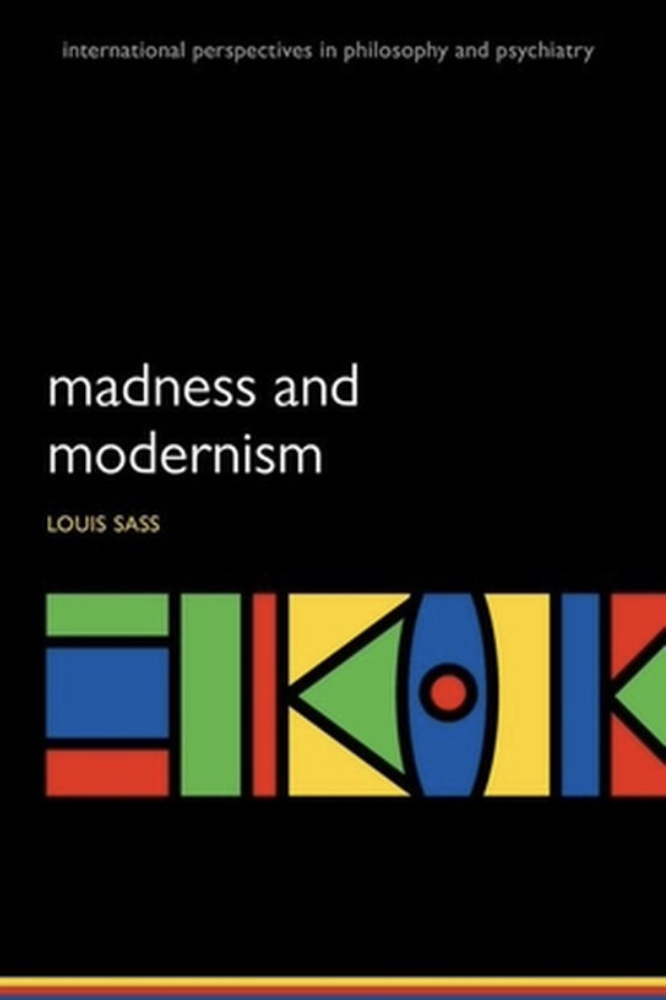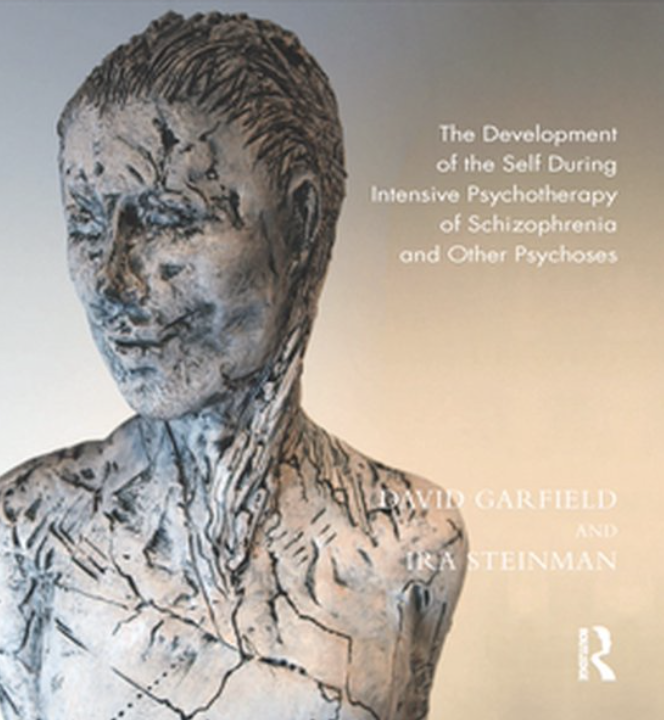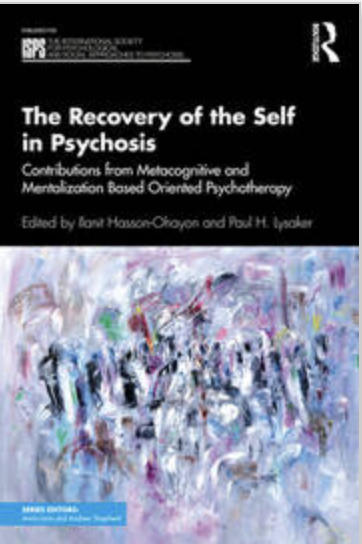Ontwikkeling van het zelf en identiteit
Terecht richt wetenschappelijk psychologisch onderzoek zich steeds meer op de effecten van een psychose op de ontwikkeling van een individu. Ervaringen van vervreemding, verlies van sociaal contact, een desoriëntatie in verband met wat je in je gewaarwording wel of niet kan vertrouwen, een verlies van contact met de realiteit, verschijnselen die zich tijdens een psychotisch proces kunnen voordoen tasten het gevoel van zelf-ervaring, je kunnen onderscheiden van anderen en het vormen van een eigen identiteit aan. Ook stigmatisering ten gevolgen van taboe en onbegrip dragen hiertoe bij.
In deze rubriek verzamelen we artikelen over onderzoek en inzichten over de relatie tussen psychose en de ontwikkeling van het zelf.
Of anders gezegd: over het effect van de veranderingen die je als mens tijdens een psychose ondergaat op het ervaren van wie je bent en hoe je je onderscheidt en op eigen wijze verhoudt tot anderen.
Wat ook raakt aan het behoud van zelfwaarde en de ontwikkeling van zelfvertrouwen en aan jezelf toekomen.
Om beter onderscheid te kunnen treffen tussen het zelf, zelfervaring, subjectiviteit en identiteit. Er wordt ruimte gegeven aan diverse benaderingen van deze begrippen om een zo objectief mogelijk beeld te kunnen vormen van dit vrij complex thema.
boeken
Madness and Modernism – Louis Sass
Self Psychology and Psychosis – David Garfield
The Recovery of the Self in Psychosis
artikelen
“Understanding the Blind Spots of Psychosis” – Zeno Van Duppen en Rob Sips
“Schizophrenia, Consciousness and the Self” – Louis Sass en Josef Parnass
“Self, Solipsism and Schizophrenic Delusions” – Josef Parnass en Louis Sass
“Stop looking for the authentic self” – by David Hanscom MD
BOEKEN
Madness and Modernism

The similarities between madness and modernism are striking: defiance of convention, nihilism, extreme relativism, distortions of time, strange transformations of self, and much more. In this revised edition of a now classic work, Louis Sass, a clinical psychologist, offers a radically new vision of schizophrenia, comparing it with the works of such artists and writers as Kafka, Beckett, and Duchamp, and considering the ideas of philosophers including Nietzsche, Heidegger, Foucault, and Derrida. Here is a highly original portrait of the world of insanity, along with a provocative commentary on modernist and postmodernist culture.
Self Psychology and Psychosis
The Development of the Self During Intensive Psychotherapy of Schizophrenia and other Psychoses

In this groundbreaking volume, the authors bring us into the immediacy of the analyst’s consulting room in direct confrontation with the thought disorder, delusions and hallucinations of their patients grappling with psychosis. From the early days of psychoanalysis when Freud explicated the famous Schreber case, analysts of all persuasions have brought a variety of theories to bear on the problem of schizophrenia and the other psychoses. Here, as William Butler Yeats notes, “the centre cannot hold” and any sense of self-esteem – positive feelings about oneself, a continuous sense of self in time and a functional coherence and cohesion of self – is shattered or stands in imminent danger. What makes psychoanalytic self psychology so compelling as a framework for understanding psychosis is how it links together the early recognition of narcissistic impairment in these disorders to the “experience-near” focus which is the hallmark of self psychology.
The Recovery of the Self in Psychosis

Kijk even hier voor meer info over dit boek.
ARTIKELEN
“Schizophrenia, Consciousness and the Self” – Louis Sass en Josef Parnass
Abstract
In recent years, there has been much focus on the apparent heterogeneity of schizophrenic symptoms. By contrast, this article proposes a unifying account emphasizing basic abnormalities of consciousness that underlie and also antecede a disparate assortment of signs and symptoms. Schizophrenia, we argue, is fundamentally a self-disorder or ipseity disturbance (ipse is Latin for “self” or “itself) that is characterized by complementary distortions of the act of awareness: hyperreflexivity and diminished self-affection.
Hyperreflexivity refers to forms of exaggerated selfconsciousness in which aspects of oneself are experienced as akin to external objects. Diminished selfaffection or self-presence refers to a weakened sense of existing as a vital and self-coinciding source of awareness and action. This article integrates recent psychiatric research and European phenomenological psychiatry with some current work in cognitive science and phenomenological philosophy. After introducing the phenomenological approach along with a theoretical account of normal consciousness and self-awareness, we turn to a variety of schizophrenic syndromes. We examine positive, then negative, and finally disorganization symptoms—attempting in each case to illuminate shared distortions of consciousness and the sense of self. We conclude by discussing the possible relevance of this approach for identifying early schizophrenic symptoms.
Keywords: Schizophrenia, self-disorder, consciousness, negative symptoms, positive symptoms, hyperreflexivity.
Schizophrenia Bulletin, 29(3):427-444,2003.
Heel het artikel hieronder als download.
“Understanding the Blind Spots of Psychosis” – Zeno Van Duppen en Rob Sips
Abstract
Background: Experiences of psychosis are often assumed to be strange, bizarre, or incomprehensible. The aim of this article is to offer a new step towards a better understanding of how the psychotic process affects a prereflective background.
Methods: We use concepts from the philosophy of Ludwig Wittgenstein to clarify the first-person perspective on psychosis of one of the authors. Results: We describe the early psychotic process as breaking down the “nest of propositions,” shaking the scaffolds of our language games. Hereby, the prereflective background that forms our existential orientation in the world is fundamentally altered. We identify different aspects of this process: a dialectic of aha and anti-aha experiences, the experience of groundlessness, and blind spots. Acknowledging and exploring the depth and impact of this process on a person’s world may be a first step towards resolving their isolation and suffering. Philosophy can facilitate such an exploration, while interpersonal activation may offer structure and trust in the world, helping the patient to find solid ground in action and interaction.
Conclusion: This article combines a philosophical approach with a first-person perspective on psychosis to illuminate aspects of psychosis that have not been described or elaborated on before. We argue that psychosis entails an experience of existential groundlessness. Our view has implications for treatment of and recovery from psychosis.
Keywords
Phenomenology · Wittgenstein · First-person account · Psychosis · Delusion
Heel het artikel hieronder als download.
“Self, Solipsism and Schizophrenic Delusions” – Josef Parnass en Louis Sass
ABSTRACT: We propose that typical schizophrenic delusions develop on the background of preexisting anomalies of self-experience. We argue that disorders of the Self represent the experiential core clinical phenomena of schizophrenia, as was already suggested by the founders of the concept of schizophrenia and elaborated in the phenomenological psychiatric tradition.
The article provides detailed descriptions of the prepsychotic or schizotypal anomalies of self-experience, often illustrated through clinical vignettes. We argue that delusional transformation in the evolution of schizophrenic psychosis reflects a global reorganization of consciousness and existential reorientation, both of which radiate from a fundamental alteration of the Self. We critically address the contemporary cognitive approaches to delusion formation, often finding them approaches to delusion formation, often finding them inconsistent with the clinical features of schizophrenia or implausible from a phenomenological point of view.
KEYWORDS: self-awareness, subjective experience, preschizophrenic prodrome, phenomenology, psychosis, cognitivism.
Heel het artikel hieronder als download
“Stop looking for the authentic self”
Een artikel van David Hanscom dat verscheen in “Psychology Today”, december 2020
“Stop looking for the authentic self – it is right in front of you”
KEYPOINTS
Our actions today are determined by what has been programmed into us from birth.
There is no mysterious “authentic self” that needs to be discovered.
The ideal of an “authentic self” is unattainable and creates further frustration in the form of your self-critical voice.
With awareness and curiosity, all the information you need to know about who you are is available today.
